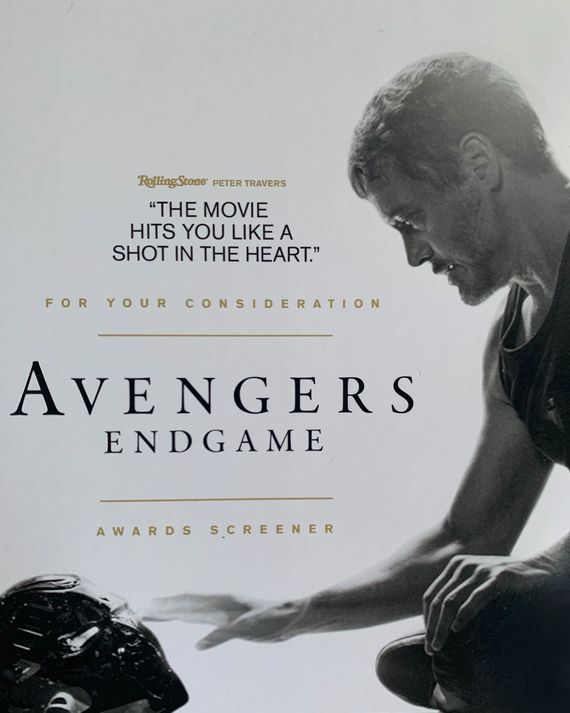
In the months since Avengers: Endgame blipped its way out of theaters and lodged itself in the collective consciousness, the superhero epic has come to be best understood within the context of its superlatives. On the one hand, the movie is the standard-bearer for what Martin Scorsese — bashing Marvel movies as a whole — has decried as theme-park filmgoing, a stark contrast to the “cinema of human beings trying to convey emotional, psychological experiences to another human being.” To Scorsese and his peers, the 182-minute, $2.8 billion blockbuster embodies Hollywood’s bottom-line fixation with IP to the exclusion of more intimately observed, grown-up movies that are being shunted off to streaming services at an alarming rate.
But at the same time, Endgame managed to become the highest-grossing film of all time, tying up multiple Marvel Cinematic Universe narrative strands in one showing, while also somehow sidestepping the toxic fan backlash that typically accompanies movies of such scope and nostalgia. It’s the apogee of MCU triumphalism in an era of grandiose cinematic-universe proliferation.
With Endgame’s place in the Hollywood history books seemingly secure, some industry observers have shifted their focus to another milestone that is both within and without the movie’s present halo of success: Does Marvel Studios’ biggest hit have any chance at a Best Picture Oscar nomination?
Last year, of course, Marvel’s Black Panther cracked the Academy Awards’ glass ceiling for megabudget comic-book fare. Riding a wave of cultural euphoria as the first stand-alone studio superhero movie centered around a character of African descent, the $1.34 billion-grossing film landed a first-of-its-kind Best Picture nod and ultimately netted three Oscars (for production design, costume design, and original score). But while Endgame hit multiplexes front-loaded with Academy-anointed talent — its ensemble cast includes seven Oscar winners (Natalie Portman, Tilda Swinton, and Michael Douglas among them) and 11 more Oscar nominees (Bradley Cooper, Samuel L. Jackson, and Angela Bassett in that mix) — the 22nd Marvel Studios entry and end of the MCU’s Phase 3 faces an uphill battle. “The Academy doesn’t do sequels in Best Picture,” one awards campaign strategist tells Vulture.
That hasn’t stopped its studio distributor, Disney, from mounting a full-throated campaign to convince critics, guilds, and Oscar voters that Endgame — the direct sequel to 2018’s Avengers: Infinity War and fourth Avengers installment overall — rises above its forebears to deserve an Oscar nomination, even if a Best Picture win seems like magical thinking. A:E For Your Consideration ads have been blanketing Hollywood trade papers since November, and a DVD screener for the film sent out to awards-season voters features the sepia image of Robert Downey Jr.’s Iron Man/Tony Stark character in a moment of existential melancholy accompanied by the pull quote from a Rolling Stone review: “The movie hits you like a shot in the heart.”
The road to convincing the Academy that a sci-fi blockbuster featuring a trash-talking raccoon, America’s ass, and Fat Thor rises to the level of serious art and deserves to square off in the winner’s circle against works by presumptive Best Picture auteurs Scorsese, Quentin Tarantino, and Bong Joon Ho is understandably not without obstacles. But according to Fandango managing editor Erik Davis, Hollywood’s awards voters have a historical soft spot for franchise finales.
He points to the Best Picture benediction heaped on Lord of the Rings: The Return of the King in 2003, the final installment of Peter Jackson’s Middle-earth film trilogy (which also netted Academy gold for Best Director, Adapted Screenplay, Film Editing, Art Direction, and Original Score, among other technical awards). “We saw this with the last Lord of the Rings,” Davis says. “It sort of swept the Oscars because they wanted to honor the trilogy. Something similar happened with the conclusion of Game of Thrones at the Emmys. It’s a tough category, but I think [Endgame] deserves a Best Picture nomination. We are going to see a situation where it is time to honor what Marvel Studios has accomplished over the last 10 years.”
To hear it from Gene Del Vecchio, the author of Creating Blockbusters! and a longtime marketing and entertainment industry consultant, Endgame could enjoy a certain competitive advantage in the Best Picture sweepstakes, if for no other reason than its affiliation with the multitude of below-the-line workers, effects technicians, and animators who toiled on the movie. “You have hundreds of people who did the film, right? So you would think that as a result of so many people in the Academy actually having worked on this movie that a major blockbuster like this would have a real chance at the award,” he says.
Moreover, in the absence of 2018’s proposed then quickly scrapped Popular Oscar initiative, Del Vecchio reasons that two competing sets of rationales — both born out of recent changes in voter attitudes — may ultimately decide whether Endgame winds up listed among the five to ten films on the Best Picture ballot this year.
“There are two potential reasons why Avengers: Endgame could make the [Best Picture] nomination. One is a good reason, one is a bad reason,” says Del Vecchio, who also works as an adjunct professor of marketing at the USC Marshall School of Business. “The good reason is: The Academy truly believes that it is a masterpiece of artistry, and they truly understand it as a tapestry of dozens of story lines and characters that were introduced before Endgame that suddenly coalesced into this seamless, beautiful story that ended this part of the franchise. They’d be understanding and validating the powerful artistry that went into that.”
“The bad part would be if they nominate a blockbuster for the sake of nominating a blockbuster,” he continues, “by saying, ‘Okay, I guess we have to put in a blockbuster, because now there’s a battle between the Old Guard and the new guard.’ That would mean they’re trying to appease part of their own membership and they’re trying to appease the TV audience. That would be the wrong reason.”
With Academy voting closed on Tuesday and nominations set to be announced on January 13, we’re simply left to wait and see whether Endgame has managed to snap its way into the Oscar race. By the estimation of one awards campaign strategist and former studio executive (who is also a longtime member of the Academy’s executive branch), however, the movie will most likely be edged out by another comic book–derived property that picked up way more awards buzz over the past few months, as well as a pair of Golden Globes (including Best Actor — Motion Picture Drama for Joaquin Phoenix) last weekend.
“Endgame has a shot. Joker has a better shot,” the person says. “They most likely cancel each other out.”
More From This Series
- The 2025 Oscars Will Have Conan O’Brien, a Wicked Performance, and a Surprise
- Cheese: An Annotated History of the Oscar Class Photo
- Seth Rogen Will Always Speak His Mind at an Awards Show



